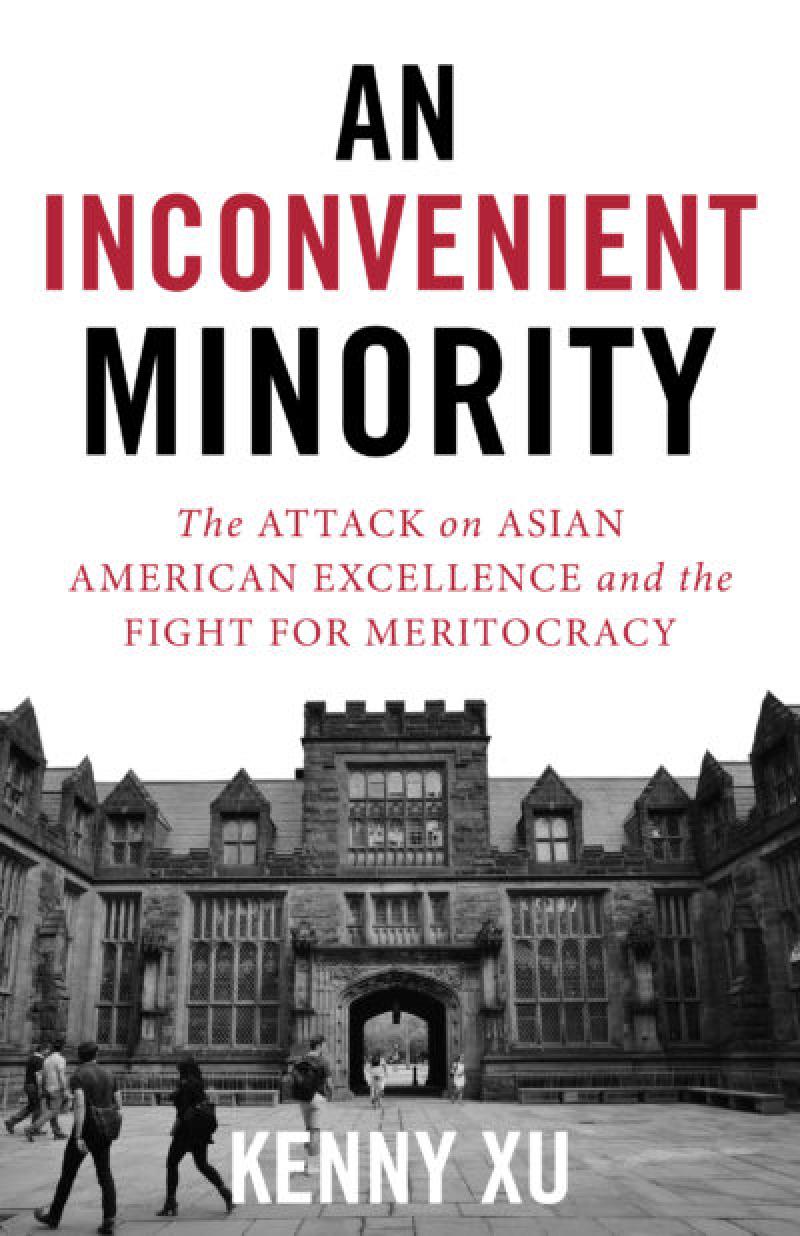Book Review: 'An Inconvenient Minority' by Kenny Xu
By: Leslie Eastman (Legal Insurrection)



Legal Insurrection readers are likely familiar with Kenny Xu, a true investigative journalist who has covered the Students for Fair Admission (SFFA) v. Harvard case since its inception.
Most recently, Kenny prepared a piece for our website that provides an uncompromising, intelligent analysis of how social justice activists are using "equity" to compromise the foundations of the American justice system.
Kenny has also completed work on an outstanding new book that blends his experience with the Harvard lawsuit with the toxic Critical Race Theory policies promoted by progressives. The book, An Inconvenient Minority: The Attack on Asian American Excellence and the Fight for Meritocracy, is slated to be officially released July 13.
While Kenny does focus a good portion of the book on the Harvard case, that material is really a springboard to a more fascinating and important look at Asian Americans in today's society, especially through the prism of Critical Race Theory. He demonstrates how Asian Americans, both native and immigrant, are now dominating the nation's technical fiends and are critical to the modern American workforce. However, personality-based parameters, diversity programs, and racialist employment guidelines are being used exclude them from enjoying the highest ranks of money, power and position.
An Inconvenient Minority is full of facts and figures, but presented in a very engaging way that helped underscore the strength of the case being made. I must admit that until reading this book, I had not fully appreciated how university diversity programming was being implemented to protect the privileged, white, progressives whose children directly benefited from revised admission policies.
One of the most gripping portions covers how New York Mayor Bill de Blasio worked to eliminate the Specialized High School Admissions Test (SHSAT), which is taken by students in grades eight or nine who want to enroll in one of New York City's specialized high schools. Asian Americans, who were being admitted through merit after studying diligently, were accused of "gaming the system."
During hearings to promote the change, concerned parents waited for hours to comment after all the race activists had a chance to speak. Kenny covered the experiences of Yiatin Chen, one of the leaders of the group opposing de Blasio's SHSAT cancel campaign (which, fortunately, proved unsuccessful).
"The elected officials started calling up these groups," she remembered—and video footage of the public hearing confirms. "[Social justice activist and 2021 Mayoral candidate] Maya Wiley . . . [and] diversity groups . . . started talking about racial equity and social justice and nothing else.
"At around 2:30, the crowds started thinning out. The media and cameras were being packed up." The diversity groups were given full attention.
But Asian parents continued to wait their turn on the sidelines. They were facing what so much of American culture had historically levied upon Asian Americans since their entrance into this country: invisibility, rejection of their voices, dismissal of their desperate wishes to contribute to a society they travelled ten thousand miles to reach.
Yiatin continued: "It wasn't until 5:30 [that] they started calling up regular parents. The whole room was basically empty except for . . . Asian parents, other parents.
Another revelation is exactly how Big Tech (Goggle and Facebook especially) use Asian Americans talent to make billions, yet fail to reward them with promotions and an appropriate cut of the profits.
Asian Americans have really become a sort of unfun topic in Silicon Valley corporate life. In fact, they embarrass the diversity-obsessed gurus at Google and Facebook.
One would think that diversity and inclusion, now the dominant cultural ideology in progressive epicenters like Big Tech, would benefit Asians. But as with that assumption about elite colleges, one would be wrong.
Asians are not considered "diverse" in the progressive tech world— despite unequivocally being a racial minority as only 6-8 percent of the total American population, and yet representing 40-some percent of the world's population by heritage.
In fact, Asian Americans represent 41.8 percent of Google's workforce. Yet in Google's 2020 Annual Diversity Report, sponsored and written by Chief Diversity Officer Melonie Parker (yes, these are well-compensated, professional positions in modern corporate life, with average salaries close to $127,000 a year, according to Glassdoor), Asian Americans are barely mentioned. Instead, the report comments on Google's "increase[d] representation for women globally, and for Black+ and Latinx+ employees in the US.
Kenny then demonstrates that, based on profits and contributions, Facebook software engineers should be earning $3 million a year. However, because of the HB1 visa program and other methods of manipulating employment, these employees earn $150,000 to $500,000 annually.
One last note: Kenny writes that he failed to get an internship because he came off as too alpha during the personality portion of the interview process. I am sure glad he is a fierce fighter, because we need everyone we can get as we battle against racialism.
An Inconvenient Minority is powerfully and passionately written. Yet, it is also engaging and entertaining. I give it 6 stars out of 5…the 6th star being for being on the frontlines of this battle as well as not turning the book into just a collection of blog pieces.
I strongly recommend anyone with an interest in fighting against Critical Race Theory read "An Inconvenient Minority".





Last night Kenny Xu was a guest on Tucker Carlson's show. The topic was the attacks on Asian-Americans and who the real perpetrators were.
His Book is:
An Inconvenient Minority
This can't be true. Asians can't possibly do well in school or on tests, those systems were designed so only white men could succeed and keep minorities from doing well.
Had to smile when I read that, knowing that Zuckerberg is married to an Asian.
I think Van Jones taught us that love for one's wife doesn't always extend to her race.
I don't know that I "love" any race in particular, but by being in China and having married a Chinese woman I have learned to very much appreciate the Mongolian race. Back in Sociology class (I'm talking about around 63-64 years ago) we learned that there were 3 races - Caucasian, Negroid and Mongolian.
You don't have to love an entire race. Just treat everyone as equals. Am I right?
Absolutely.